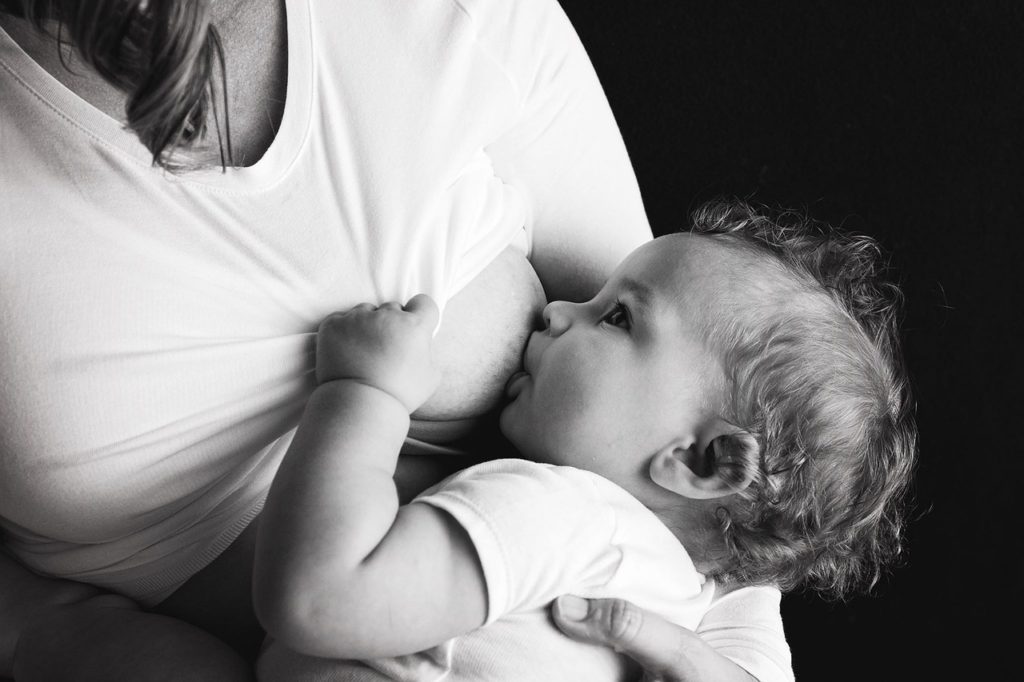The American Academy of Pediatrics (AAP) recommends that mothers breastfeed exclusively the first six months of an infant’s life. The AAP guidelines advise mothers to continue breastfeeding along with the introduction of solid food until a child is at least a year old. The World Health Organization extends this recommendation until the age of two. [note]https://www.nichd.nih.gov/health/topics/breastfeeding/conditioninfo/recommendations[/note]
Longer breastfeeding has been associated with many health benefits for mother and child. Previous studies have found that one year of lactation reduced the risk of breast cancer by 32% for the BRCA 1 gene. Another study found that children that were breastfed at least four months had fewer behavior problems at age five.

New research has found an additional benefit to breastfeeding exclusively for at least six months. This 25-year long study followed mothers to see if there was a connection between the length of breastfeeding and non-alcoholic fatty liver disease (
Reuters explains:
By the end of the study, the women were 49 years old on average. Fifty-four, or about 6 percent, had developed NAFLD. Women who breastfed babies for at least six months were 52 percent less likely to develop
liver disease than mothers who nursed for less than one month, researchers report in the Journal of Hepatology. “This new analysis contributes to the growing body of evidence showing that breastfeeding a child also offers significant health benefits to the mother,” said study leader Dr. Veeral Ajmera of the University of California, San Diego. [note]https://www.reuters.com/article/us-health-liver-breastfeeding/longer-breastfeeding-tied-to-lower-risk-of-liver-disease-idUSKBN1OB2Q5?fbclid=IwAR0xToo7TWRpR6XKOSysO5uotSH9uMTveGPvcXg6ZpfIZ_SabUMjW-qUDsI[/note]
The study “Longer lactation duration is associated with
A longer duration of breastfeeding has been associated with multiple potential health benefits for the mother including
reduction in heart disease, diabetesand certain cancers. In thisstudy we found that breastfeeding for longer than 6 months was associated with a lower risk of non-alcoholic fatty liver disease in mid-life. [note]https://www.journal-of-hepatology.eu/article/S0168-8278(18)32387-0/fulltext[/note]
As the name implies, non-alcoholic fatty liver disease develops in people that drink little or no alcohol and is characterized by too much fat being stored in the liver cells. 80-100 million Americans have NAFLD. Being overweight or obese increases the risk. [note]https://www.mayoclinic.org/diseases-conditions/nonalcoholic-fatty-liver-disease/symptoms-causes/syc-20354567[/note]
Researchers were careful to note that women who breastfeed longer may also be more health conscious. Breastfeeding often inspires women to make dietary lifestyle changes. Furthermore, women who follow health guidelines for the duration of breastfeeding are also more likely to exercise, which is also know to reduce the risk of NAFLD.
In addition, lactation burns calories. Mothers that breastfeed easily lose weight from pregnancy, as well as additional pounds. This reduction in body fat may also contribute the lowered risk of NAFLD.
Research continues to find more benefits for babies and mothers to breastfeed for at least six months.
Leave a Reply